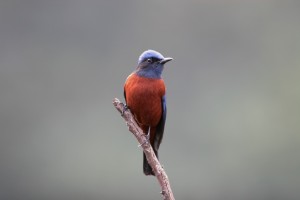
Covering 38,394 sq. kilometers, Bhutan boasts of 70% forest cover, which is home to more than 700 species out of the 2,900 species of birds in Asia. Bhutan is considered a birding paradise with 678 recorded species. At least 14 species are globally threatened and ten fall within the restricted range. The white-bellied heron (Ardea Insignis) is considered critically endangered by the IUCN because of its low population status and loss of habitat. The diversity of birds is largely attributed to the variety of climates and habitats ranging from 95 to 7,550 meters.
The diversity of bird life of Bhutan is accentuated by the migrations of hundreds of species between breeding grounds across a vast expanse of Asia to the north of Bhutan and wintering grounds of the subcontinent of India. Bhutan is enormously rich in bird diversity. Of the 675 species recorded, 78% are resident and breeding, 7% are passage migrant, 8% are winter visitor, 6% are uncertain and 1% fall in the data deficient category; 27% show elevational migrations.
Bhutan ranks among the most bio-diverse countries in the world and has an incredible range of habitat type due to her location. The warm southern part of Bhutan supports wildlife that is usually associated with a tropical-jungle climate. As one progresses north, the wildlife changes accordingly as the elevation increases. Wet summers and altitudinal gradation from sub-tropical lowlands to mountain peaks provide an array of climatic conditions and a layering of distinct biotic communities from jungles through temperate forests to tundra. Each community has a unique assemblage of wildlife.
Birds found in Bhutan fascinate birdwatchers and photographers alike. Micheal Ian James – a tourist from England – was sneaking a shot of one particular bird (Plumbeous Water Redstart) by a stream in Dhob Shari, Paro. The bird was busy trying to mate. After following it for a little more than an hour, the female bird posed for him for more than 20 minutes while the male took cover in a bush.
Possessive and territorial, the male bird suddenly hovered over Michael’s head and pooped on his back. Perhaps, what Charles Darwin said in “The Evolution of Species” is true; the sensual faculties of the birds are far more responsive than human.

